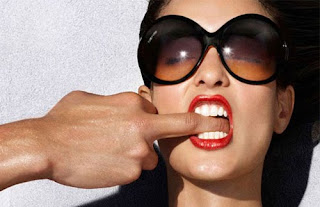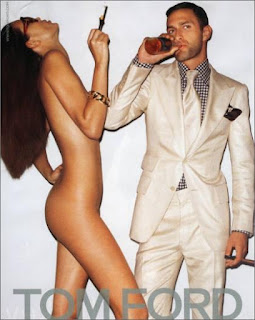

Dolce & Gabbana and Calvin Klein have created advertisements that they feel satisfy some sort of “female fantasy”. To sell their jeans, Calvin Klein has half dressed three young men and may as well not have dressed the one frail female in the photo. The three men have obviously participated in an orgy with the woman. One guy is so tired he has passed out on the floor. On top of a new guy, she is nearing exhaustion as she tries to satisfy the man sitting on the couch as well as the one she’s on top of. Dolce & Gabbana places the seductive woman on the ground, hips thrusted, and being held down by a half naked man. Also in their photo is four other men modeling clothes while watching, perhaps waiting for their turn with the woman.
What is interesting about these advertisements is that the women seem to be enjoying all of this attention, these men, and the forceful sexual acts. They are posed as if they want all of the sex, that they like being dominated by these men.
Is this a real fantasy for women? Maybe for some, but I would say it is more of a problem than a realistic portrayal. Sure, every girl desires attention, love, affection from someone…and if he’s cute that doesn’t hurt either. However, I am not so sure how many women would truly sexually welcome five men at a time. Sexual acts that are unwelcome are considered rape, and I believe these ads are contributing to the rape occurrences in our culture. When we see these ads, men may think women desire this, and women may feel they don’t have the power to fight in a rape or say no when being pressured.
What values, lifestyles, and points of view are being represented or omitted from these advertisements? What is this saying to you personally? Do you think images like this may be contributing to acts of violence against women?
 Skyy Vodka has numerous more highly sexual based advertisements besides the ones featured here. How do these pictures make you feel while viewing them? What does it say to you about their product? Is the product making false claims? Do you believe these advertisements are directed at men, women, or both.
Skyy Vodka has numerous more highly sexual based advertisements besides the ones featured here. How do these pictures make you feel while viewing them? What does it say to you about their product? Is the product making false claims? Do you believe these advertisements are directed at men, women, or both.













